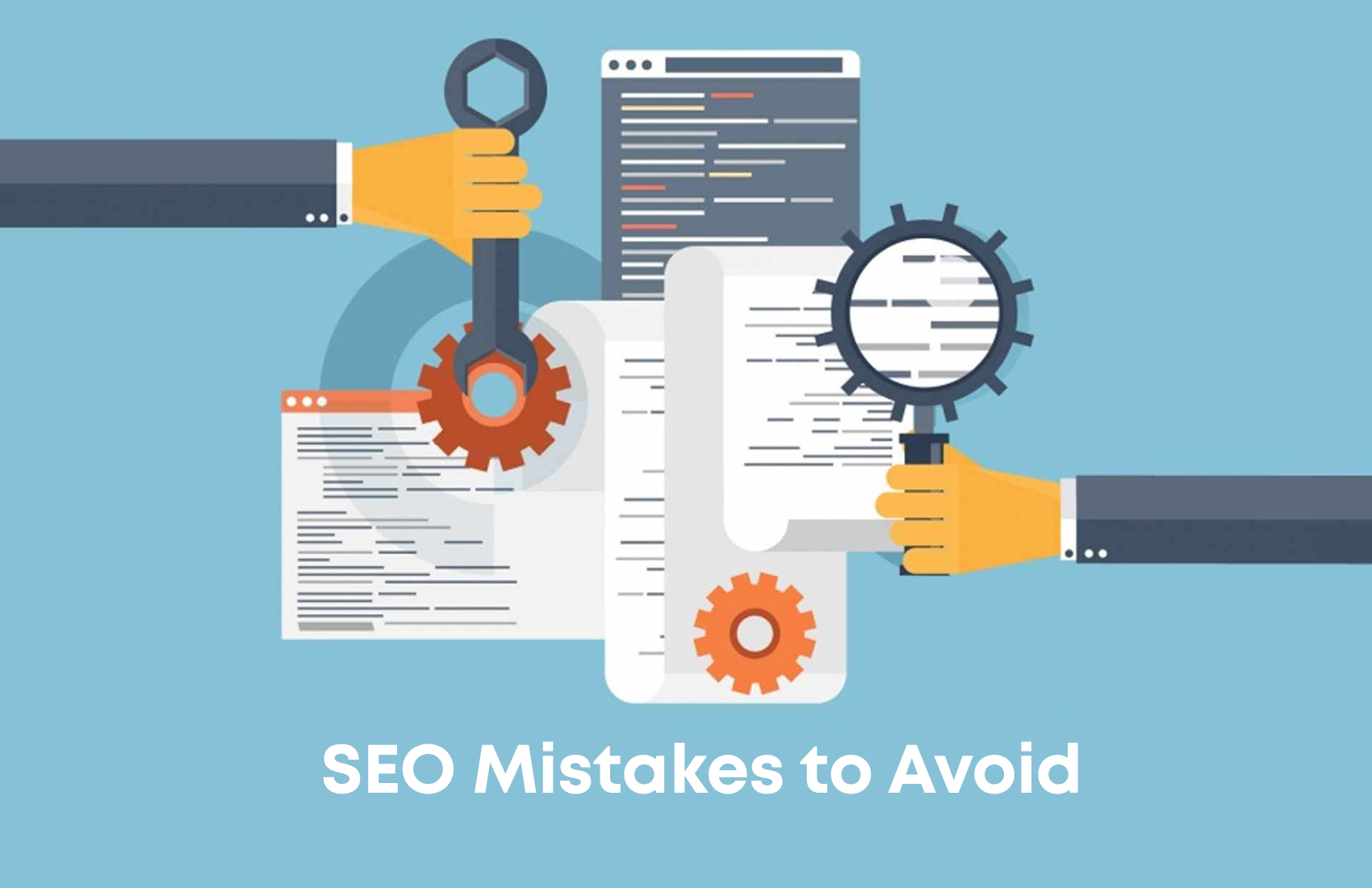11 Simple SEO Mistakes to Avoid [Hint: You’re Probably Making Some of Them
As SEO pros, we come across badly optimised websites all the time. Some of them are SEO disasters, but most suffer from simple, silly mistakes that you can easily avoid. Here are the 15 most common, simple-to-avoid SEO mistakes, and how to fix them!
1. Not Optimizing Title Tags
You’ll be surprised to see the number of sites that have their title tag set to something like “Home” or “<Brand> Home Page”. The title tag is the most important SEO element on any page, not only because the spiders read them, but because your users see them on the SERP (search engine results page). Make sure you have a meaningful, keyword rich, unique title tag for each page.
2. Using Same Title Tag for Different Pages
Silly, right? But that’s the problem with a staggering number of websites. Use the Google or Bing webmaster tools to check for duplicate titles. For smaller sites, you can even check manually and have a unique title tag for each page.
3. Publishing Similar Content on Different Pages
This problem arises when SEO was not considered during the site’s architectural process. Over a period of time, duplicate content can exist on different pages, which affects your SEO ranking. To fix this error, you need to reconcile your XML sitemap with the Google Webmaster Tools and get rid of all duplicate pages.
4. Missing Pages and Broken Links
Nothing turns off your users and sear engine spiders like the 404 errors on your site. Yet, it’s amazing to see how many sites have this problem. Look for 404 errors by going to the Google WMT’s dashboard, where you can find them under Health>Crawl Errors>Not Found.
5. A Shallow Home Page with Low Link Equity
The search engines want your homepage to be a like a portal from where users can access the most important pages of your site. Your homepage should have the most number of links on your site that should flow to the category, product, or content pages in a natural manner.
6. Cluttering the Homepage with Too Many Links
Web stores with thousands of product pages may have the tendency to dump hundreds of links on their homepage, making it too complex to navigate. The good old guideline of having 100 or so links per page is still valid. Use Google WMT Crawl Diagnostics to view a list of pages with too many links.
7. Having Shallow or Plagiarized Content
I’ve seen many sites that fall off Google’s first page into oblivion because they have thin or copied content on their pages. This can happen to big e-commerce businesses that have a large number of product pages. Google’s Panda update flags sites for having copied or thin content and can demote them in SEO ranking. There’s apparently no shortcut to rich, unique content, so you better start adding it now.
8. Not Using Analytics to Monitor Traffic
It’s a shame so many of the sites still don’t have Google Analytics installed. Unless you are monitoring the traffic coming to your site, you’ll have no idea about which keywords are delivering more clicks than others. Analytics will also tell you which particular pages or content your visitors are spending most time with, the possible problems in your navigation and site structure, and the conversion rates. Without this knowledge, your SEO is lost in the dark.
9. Ignoring Local SEO
Local SEO has peculiar considerations, such as having the same NAP (Name, Address, Phone number) and description across all local directories and listings, using local keywords, participating in local online communities, etc. For a small business, Local SEO is the shortest route to the top of search results, but it’s amazing how many SMBs ignore it.
10. Using Misleading Keywords
Business owners have the tendency to go for keywords with most number of searches and least competition. However, sometimes these words do not correctly represent the content you have on your site. This can result in a high bounce-back rate and lower rankings.
11. Hiring the Wrong SEO Firm
I’m embarrassed to say this mistake should be at the top of the list. Too many self-styled SEO professionals will promise you a first page SEO rank, but they’ll leave your site in a worse position because of the black-hat tactics they adopt. The search engines are smarter today than ever before, so it’s not possible to deceive them by building phony or low-quality links or using too many keywords on your pages. Always be 100 per cent sure your SEO company know what they’re doing.
Conclusion
You’ll need to spend time on your site to get rid of these and other SEO ‘bugs’ that exist in an overwhelming majority of sites. Removing them will not always get your site to the first page search results overnight, but will point you in the right strategic direction.








